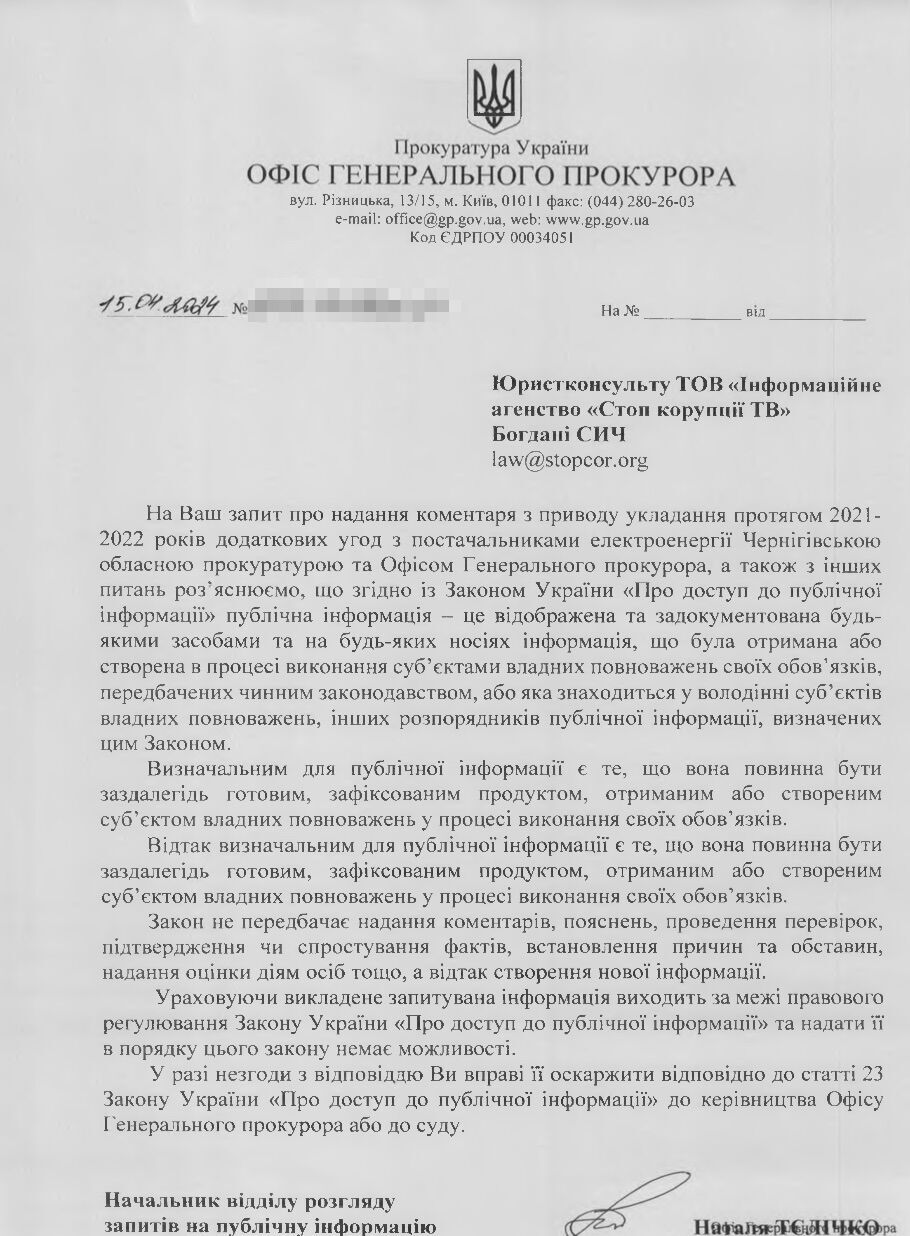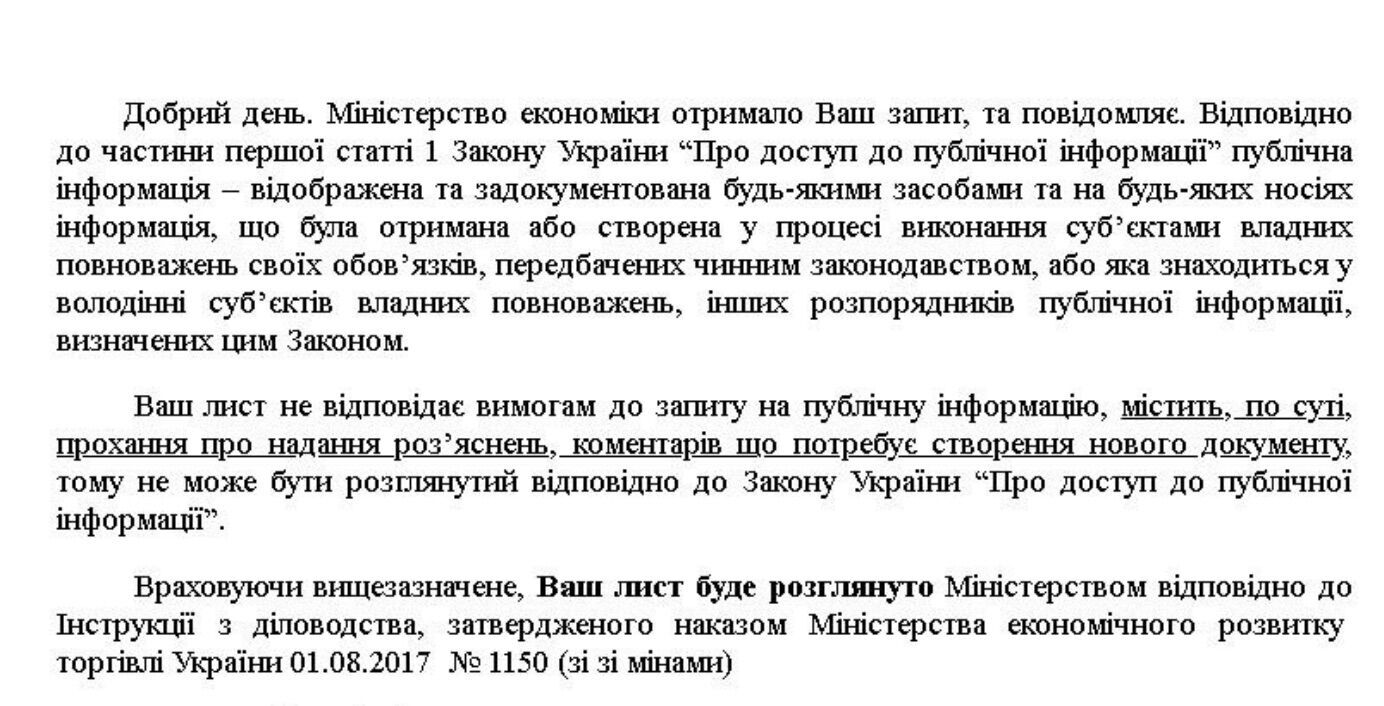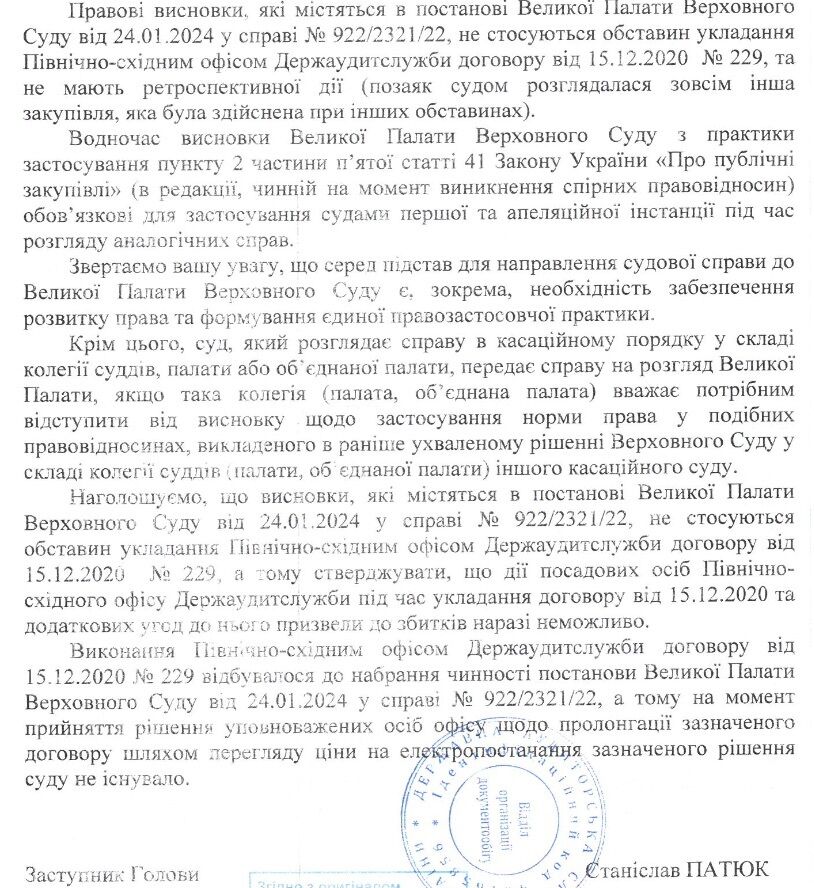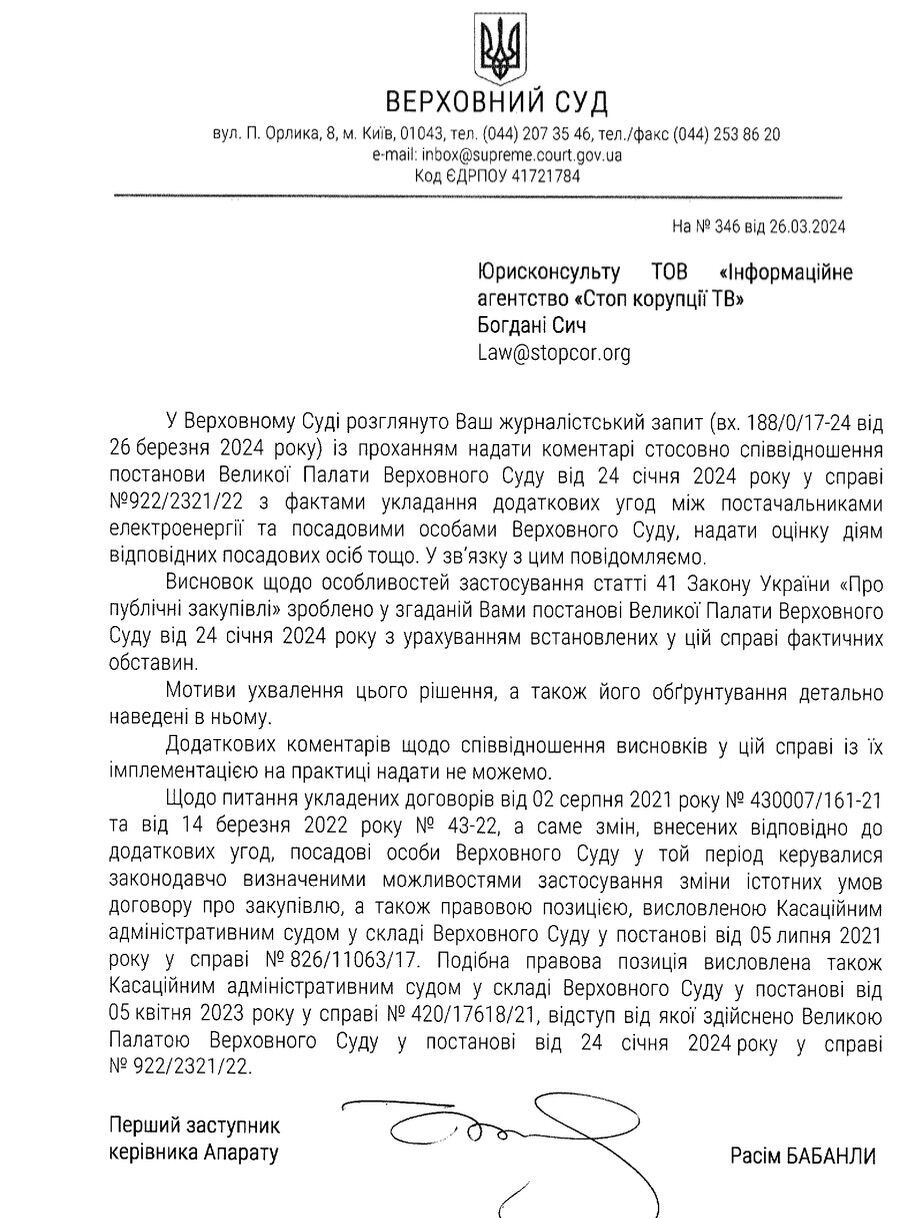Новое постановление Верховного Суда ставит под угрозу все тендеры на энергорынке Украины: речь идет о соглашениях на десятки миллиардов гривен
Тотальный блекаут или шоковая терапия для отечественного энергорынка от местных прокуров и судей? В конце января Большая палата Верховного Суда удовлетворила требования прокуратуры и издала постановление, которое может заблокировать поставки электроэнергии едва ли не всем бюджетным организациям и учреждениям Украины. Под ударом оказалась целая система энерготрейдинга, речь идет о потенциальных делах минимум на 20 млрд грн.
Кто и зачем ставит под угрозу энергетическую безопасность страны во время войны, что теперь будет с тендерами на поставку электричества и из-за кого украинские «бюджетники» могут остаться без света?
24 января Верховный Суд Украины принял постановление по делу 922/2321/22. Она подытожила ход процесса Черниговской областной прокуратуры против компании «Век Технолоджи» и признала противоправными дополнительные соглашения на электроэнергию общей стоимостью более 400 тысяч гривен, которые поставщик заключил со Спецотрядом ГСЧС в течение 2021 года.
О чем идет речь?
Как отмечает специалист в сфере закупок Андрей Костенко, фактически ВС Украины определил, что нельзя увеличивать цену за единицу товара по заключенным договорам по результатам проведения публичных закупок более чем на 10% в сумме.
«То есть даже если повышение цены за единицу происходит неоднократно, то вместе все эти повышения не могут превышать 10%. При этом проблема заключается в том, что абсолютное большинство заказчиков и участников рынка публичных закупок воспринимали эту норму таким образом, что можно несколько раз повышать цену за единицу товара. Однако каждый из этих раз не может быть отдельно больше 10%, а в сумме понятно, что поднятие может составлять более 10%», – комментирует он.
Иными словами, с весны 2020 года в Украине действуют нормы закона о закупках. По ним можно в течение действия сделки повышать стоимость товара с порогом в 10% в зависимости от колебаний рынка. Но в законе нет точного толкования – в целом или за одно дополнительное соглашение. И это послужило основой проблемы.
Другой эксперт по закупкам Валентин Петров указывает, что Минэкономики давало разъяснение, в котором говорится, что повышать цену можно несколько раз, но не более чем на 10%. Так же закон толковали и юристы. Одним из их аргументов было ограничение, запрещавшее увеличение стоимости чаще, чем раз в квартал.
Неужели прокуратура своими требованиями искажает видение закона?
Оказывается, тяжба с «Век Технолоджи» – уже не первая подобная попытка. Однако ранее тот же Верховный Суд становился на сторону поставщиков. Но свежее его постановление ставит под удар тысячи соглашений, заключенных с весны 2020-го по октябрь 2022 года, когда действие закона приостановило введение особого порядка закупок из-за войны.
«Прокуратура будет теперь считать, что все те заказчики и все те поставщики, которые подняли цену более чем на 10% по дополнительным договорам, – это все фактически ущерб, нанесенный государству. И будет обращаться к таким поставщикам товара для того, чтобы, условно говоря, компенсировать все эти условно нанесенные убытки», – считает Андрей Костенко.
Эксперты убеждены: от такой логики больше всех пострадают именно поставщики электроэнергии. Потому что они сделки с бюджетниками заключали на год, но сами киловатты должны были покупать каждый месяц по текущей стоимости.
«У нас в Украине не существует долгих контрактов на покупку электрической энергии. То есть самый длинный контракт – это условно говоря месяц. Нет ни квартальных, ни годовых контрактов. То есть представьте себе, что вы должны сегодня предусмотреть, какая цена на электрическую энергию будет через год. Еще до полномасштабного вторжения это была «задача со звездочкой». Плюс у нас на рынке действуют ценовые ограничения, так называемые прайс-кепы. Когда прайс-кепы пересматриваются в сторону увеличения – цена автоматически растет», – комментирует руководитель ОО «Ассоциация энергоэффективности и энергосбережения» Александр Визир.
По словам Андрея Костенко, если руководствоваться логикой прокуратуры и Верховного Суда, то выходит, что государство готово покрыть поставщикам 10% из 100, а остальные 90% ложатся на плечи поставщика. При этом последний каким-то образом должен покупать электроэнергию и продолжать ее поставлять заказчикам.
Как это все отражается на рынке электроэнергии?
Только в течение 2021 года с благословения государства стоимость электроэнергии выросла более чем вдвое. Поэтому сотни трейдеров заключили тысячи дополнительных соглашений, пытаясь догнать этот «ценовой взрыв». Причем многие из них все равно вышли в итоге в минус. А теперь, значит, еще и прокуратура, благодаря постановлению ВС, может потребовать вернуть разницу, несмотря на фактическое подорожание киловата.
«С 2020 года, когда вступила в силу вот эта норма, на которую ссылается Верховный Суд, соответственно с 20 мая все договоры, которые уже заключены по результатам торгов, проведенных по этой редакции закона, подпадают под эту нависшую над ними угрозу», – подчеркивает Валентин Петров.
И речь идет не только об электричестве, но и о любом другом товаре: газе, воде, топливе, питании и т.д. Только по электроэнергии эксперты насчитали дополнительных соглашений за промежуток с весны 2020-го по осень 2022 года на общую сумму около 20 миллиардов гривен.
Так что под угрозой окажется вообще поставка света «бюджетникам».
«Что такое поставщик электрической энергии? Это стол, стул, телефон, секретарь, сайт и все. То есть когда у компании возникнет вопрос: возвращать миллиарды гривен или просто перерегистрировать новую компанию – с рыночной точки зрения понятно, что они просто будут перерегистрировать новые компании», – отмечает Александр Визир.
В результате компании, имеющие текущие договоры с больницами, школами, той же прокуратурой, Верховным Судом и другими тысячами бюджетных учреждений, после проигрыша в суде, дефолта и банкротства автоматически расторгнут эти соглашения. И тогда «бюджетников» автоматически перебросят на так называемый ППН – поставщика последней надежды, у которого цена традиционно значительно выше рыночной. То есть бюджет потерпит новые убытки.
А после ППНа, говорит Александр, придется срочно проводить новые тендеры, выбирать новых поставщиков. Но условия уже будут совсем другими.
«Если эта ситуация не разрулится в нормативном поле, то есть не найдут какой-либо способ обеспечения для поставщика, то коммунальные субъекты и субъекты, финансируемые из госбюджета, будут получать электрическую энергию по значительно более дорогой цене. Потому что поставщики будут таким образом хеджировать свои риски», – подчеркивает эксперт.
Чем все это обернется в масштабах государства?
«Сейчас таких дел против электротрейдеров – десятки по разным областям, и количество растет в прогрессии. Более того, одна из компаний, проигравшая все звенья, уже подала иск в Европейский суд по правам человека. То есть эта ситуация выходит за пределы страны», – отмечает журналист Игорь Хмурый.
Параллельно начинается и сопротивление самих поставщиков. Трейдеры собираются и проводят онлайн-конференции, на которых готовятся коллективные обращения.
И еще один немаловажный момент: соглашения на поставку электроэнергии имеют две подписи. С одной стороны – компания, с другой – должностное лицо заказчика. И если суд признает, что поставщик нанес ущерб дополнительными соглашениями, который должен компенсировать, то как быть с подписантом от бюджетника?
Не идет ли здесь речь о статье «халатность» или даже более тяжелой?
Команда СтопКора разыскала ряд тендеров Верховного Суда, Черниговской прокуратуры, Офиса Генпрокурора, Министерства экономики и Госаудитслужбы за этот период. В них все подписывали дополнительные соглашения со значительным совокупным повышением стоимости. Потому что, как уже было сказано, фактически все бюджетники шли на такие шаги из-за рыночных реалий.
Затем редакция составила соответствующие запросы, в которых просила дать оценку действиям должностных лиц, подписывавших эти дополнительные соглашения. Не видят ли компетентные органы злоупотреблений или даже преступлений в действиях подчиненных, учитывая новое постановление Верховного Суда? Ответы оказались показательными.
В Офисе Генпрокурора заявили, что ответы на наши вопросы «не являются уже сформированной информацией». Так что на запрос нет готового ответа. А что касается комментариев – то закон не обязывает что-либо комментировать прессе.

В Министерстве экономики ответили письмом на электронную почту. Они также отметили, что ответы на наши вопросы не являются готовой информацией, поэтому ответят не через 5 суток, как для СМИ, а проработают как обращение обычного гражданина.

Несколько более развернуто ответили в Госаудитслужбе. Там подтвердили, что ранее Верховный Суд уже издавал несколько противоречащих друг другу решений. А новое постановление, по их мнению, касается именно дела, по которому оно было вынесено. Следовательно, каких-либо нарушений в действиях своих подписантов в ГАСУ не видят.

И наиболее интересным оказался ответ непосредственно Верховного Суда. В ней служители Фемиды вообще заявили, что их коллеги заключали дополнительные соглашения согласно их же решениям, актуальным на то время, так что говорить не о чем.

«Так что ситуация достаточно абсурдна. Верховный Суд говорит, что заключал новые соглашения и переплачивал за свет, потому что тогда были такие правила. А параллельно издает постановление, благодаря которому прокуратура «выбивает» деньги из аналогичных соглашений, потому что так сказал Верховный Суд. Чтобы понять весь сюрреализм ситуации – яркий пример. Сейчас в одной из областей дело против поставщика электроэнергии ведет прокурор, который сам же ранее подписывал дополнительные соглашения, которые совокупно выходили за пределы 10%. Поэтому не удивительно, что в ОГП нам отказались что-либо комментировать», – резюмирует расследователь.
Напомним, председатель Комитета по развитию инфраструктуры Федерации работодателей Украины и владелец стройкомпании Autostrada Максим Шкиль после недавнего сообщения, в котором обвинил правительство в провале программы защиты Трипольской ТЭС и других энергообъектов, объяснил, почему защита энергетических объектов в Украине потерпела поражение.


